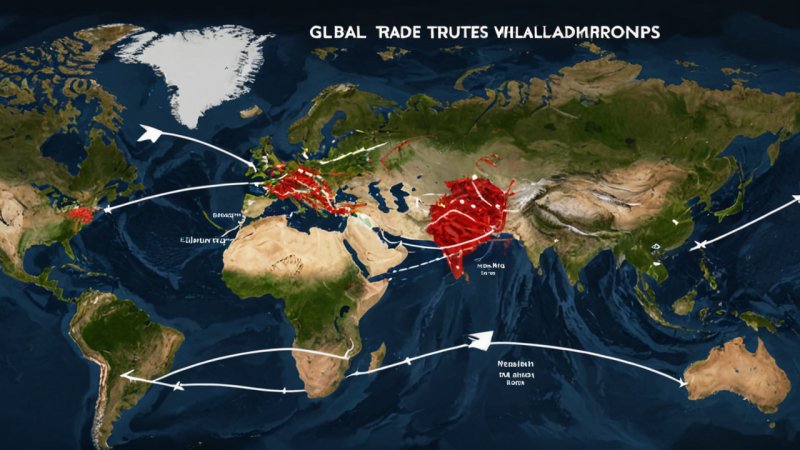Trade wars have become a significant topic of discussion in recent years, particularly as countries navigate complex economic relationships and strive to protect their domestic industries. A trade war typically arises when one country imposes tariffs or other trade barriers on another, prompting retaliatory measures. This article explores how trade wars impact global supply chains, affecting businesses, consumers, and economies worldwide.
At the core of global supply chains is the interconnectedness of economies. Companies often source materials and components from various countries to optimize costs and efficiency. When a trade war erupts, these supply chains can be disrupted in several ways. First, increased tariffs can raise the cost of imported goods, leading companies to reassess their sourcing strategies. For instance, a manufacturer that relies on steel from a country facing tariffs may look to alternative suppliers, potentially in different regions or countries.
Moreover, trade wars can lead to uncertainty in the market. Businesses may hesitate to invest or expand operations due to the unpredictability of costs and regulations. This uncertainty can stifle innovation and slow down overall economic growth, as companies focus on navigating the complexities of the trade landscape rather than pursuing new opportunities.
Another critical aspect of trade wars is their impact on consumer prices. As companies face higher costs due to tariffs, these expenses are often passed on to consumers in the form of increased prices. This can lead to inflationary pressures, affecting purchasing power and consumer behavior. For example, if the price of electronics rises due to tariffs on imported components, consumers may delay purchases or seek alternatives, further impacting the supply chain.
Additionally, trade wars can encourage companies to re-evaluate their supply chain strategies, leading to a phenomenon known as 'reshoring.' This involves bringing manufacturing back to the home country to reduce reliance on foreign suppliers. While reshoring can bolster local economies and create jobs, it may also lead to higher production costs and potential inefficiencies.
In the long term, the effects of trade wars can reshape global supply chains. Companies may diversify their supplier base to mitigate risks associated with geopolitical tensions. This trend towards diversification can lead to a more resilient supply chain structure, but it also requires significant investment and strategic planning.
In conclusion, trade wars have far-reaching implications for global supply chains, impacting costs, consumer prices, and business strategies. As countries continue to navigate these complex dynamics, it is essential for businesses and consumers to stay informed about the evolving landscape of international trade. Understanding these impacts can help stakeholders make more informed decisions in an increasingly interconnected world.






